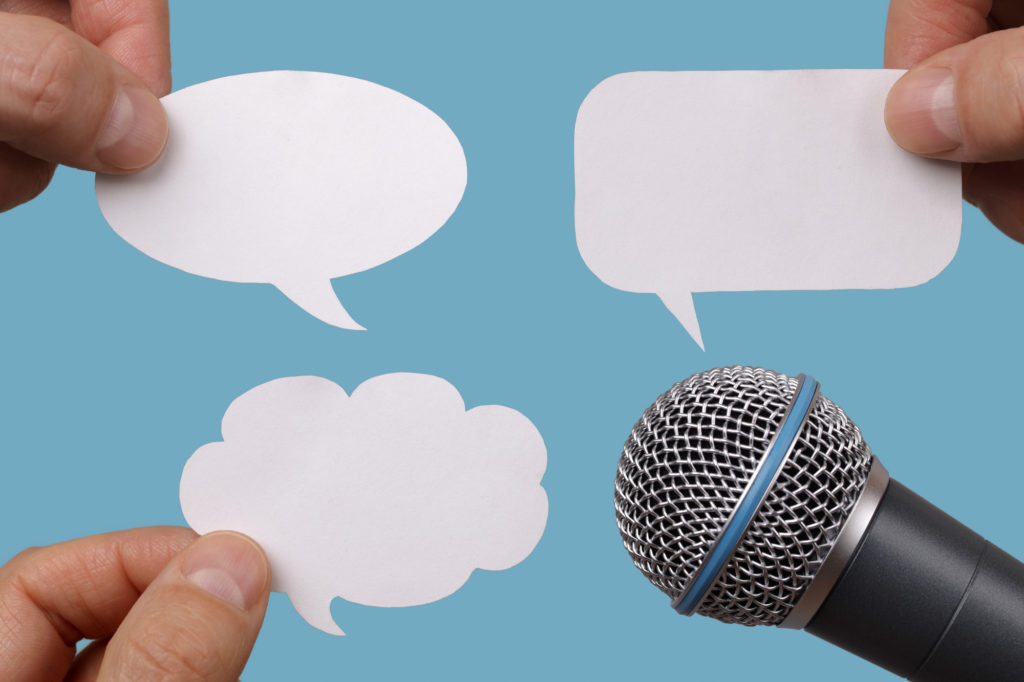
How to Prepare Before an Interview
I was recently rereading a New York Times article about Terry Gross, the host of NPR’s Fresh Air who is widely acclaimed as an amazing interviewer. The article was entitled “How to Talk to People” and it included several examples of her interview techniques that she uses to engage her interviewees and deliver an informative and inspirational story.
Many of Terry’s interview suggestions mirror what I coach clients before a media interview, so I thought it might be helpful to list some of my own tips here.
Six Interview Tips for Executives and Spokespeople:
- Don’t be surprised by the questions a reporter is likely to ask. Even for interviews on the happiest of topics, most reporters will refuse to share a list of questions they plan to ask ahead of time. That doesn’t mean you can’t be prepared in advance to answer them. Create your own list of likely questions and prepare an answer for each. You may not get asked each question on your own list, but the preparation will give you confidence that you’re ready with the answers, which will result in a better overall interview (and minimize the “ums”).
- Decide your boundaries before any interview begins. Before ever talking to a reporter and participating in an interview, know your own boundaries. Decide in advance what you’re NOT going to say and, regardless of how many ways you might get asked, stick to your plan. Knowing your boundaries and limitations in advance will make it easier not to accidentally share information you later regret providing.
- Pivot when necessary. Sometimes you’re going to get a question where you don’t have a good answer. It’s not that you’re trying to hide something, it’s simply that you don’t feel knowledgeable enough to answer the question and you don’t want to get it wrong. A great way to pivot is to say: “Let me give you an example of how we handled a similar scenario in the past.” In setting up the scenario and focusing on your strengths of how it was handled, you can often successfully reframe the question in an appropriate way where you’re more comfortable answering the root of the original question, and the reporter will likely move on to the next question.
- Don’t fill dead air. It’s the reporter’s job to keep the conversation going, not yours. Once you’ve answered the question, stop talking. Some reporters use an old interview trick of not saying anything when they were looking for a different, or less rehearsed sounding answer. It often makes the person being interviewed uncomfortable so that they start speaking again. The second answer to the same question often isn’t as polished as the first—thus sometimes making a less flattering quote—or that’s when the person being interviewed sometimes offers up more information and details which they otherwise would have preferred not to share.
- It’s okay to refuse to answer a question. Sometimes questions are uncomfortable on a personal level, or legally on a professional level. It’s okay to not answer every question, but you do need to acknowledge it was asked. If the question is appropriate and you simply don’t know the answer, tell them that but offer to try and get them the answer after the interview. If it’s something that you can’t answer, or don’t want to provide an answer later, it may help to simply be more blunt. It’s okay to say you’re not comfortable discussing the topic, or that you only have permission to discuss the topics that were the original reason for the interview. Another tact might be to refuse to answer because you’re afraid the answer will hurt someone’s feelings. Don’t be defensive when answering, but also don’t be angry that a reporter is asking. They’re simply doing their job, and most reporters will accept your decision not to answer.
- Take the Open Question– twice. You often will have two opportunities to frame the interview. The first is at the very beginning of the interview when they often ask an open-ended question like: why are we here today or could you tell us about your big announcement? This lets you share your good news unfiltered, and it’s from this initial answer that the reporter will ask follow-up questions for additional details. Lay it all out upfront for the reporter and don’t assume they already know what questions to ask. Without getting in to too much detail, give a good outline of what’s happening that’s worthy of this interview. The second opportunity you’ll have is often at the end of an interview. When a reporter has finished asking all their prepared questions, they will often ask: anything else? You should ALWAYS answer this question with any important details you think were missed that you want included in the story, or simply to give one last short highlight recap of your big news which could ultimately be used as a quote.
Oh, and if you ever find yourself being interviewed by Terry Gross on Fresh Air, I want an autograph. Not yours, hers! She’s simply masterful at getting people to share their stories, whether it be celebrities, politicians, media members or scientists. If you’ve never listened, I highly encourage you to download a podcast or listen on your local NPR station.